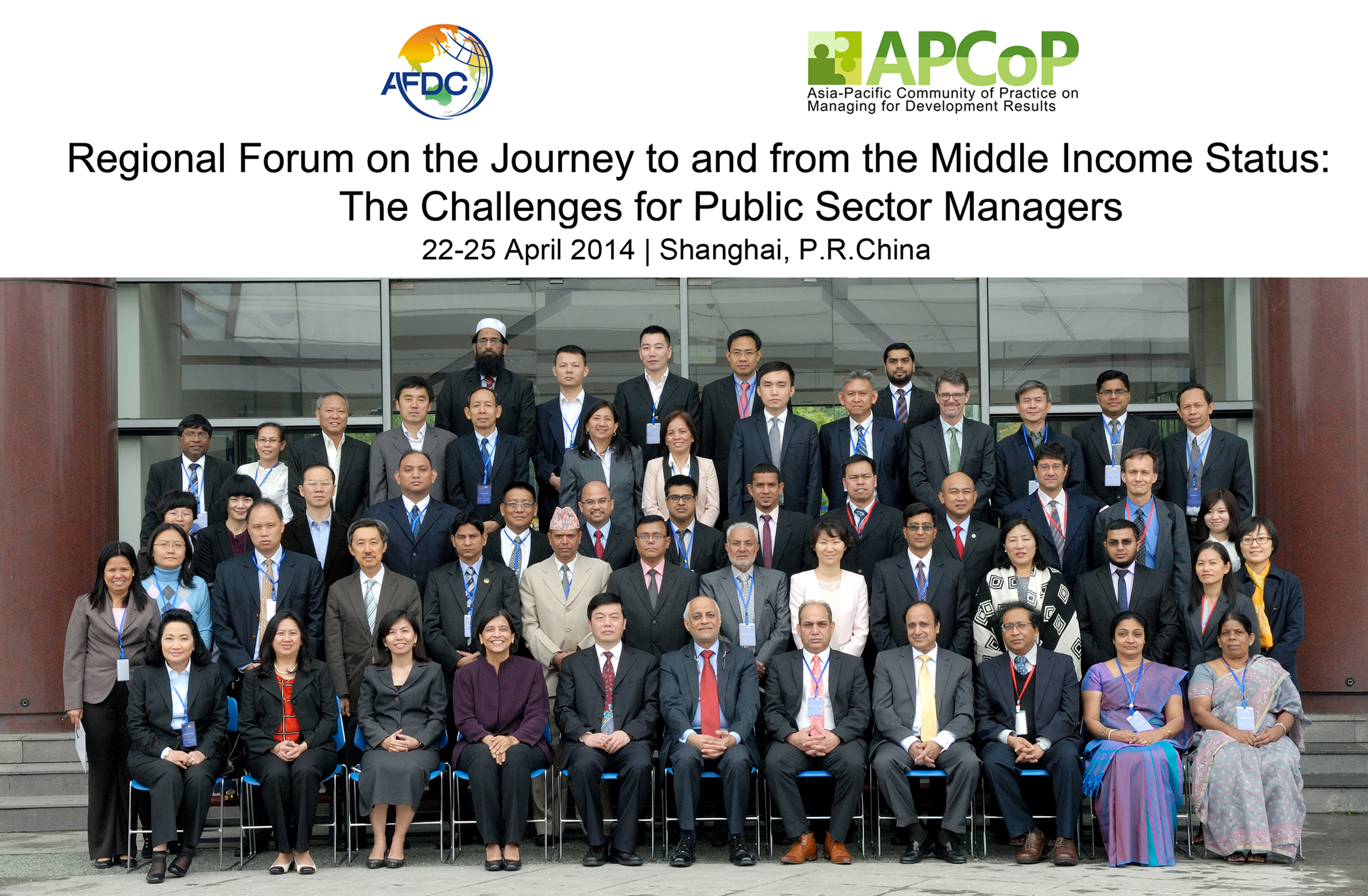Forum on the Journey to and from the Middle Income Status – The Challenges for Public Sector Managers held in Shanghai
The Regional Forum on the Journey to and from the Middle Income Status – The Challenges for Public Sector Managers, co-hosted by the Asia-Pacific Finance and Development Center (AFDC) and the Asian Development Bank supported Asia-Pacific Community of Practice on Managing for Development Results (APCoP), was held in Shanghai National Accounting Institute from April 22 to 25, 2014. 60 participants from 14 economies in Asia including Afghanistan, Bhutan, Malaysia, Thailand, Sri Lanka, Philippines, Pakistan, Bangladesh, China and etc., attended the forum, many of which are senior officials at Director-General level or above.

For the emerging economies in Asia, many have reached or are reaching the middle income status; others are experiencing the difficult passage from middle income to high income. However, many problems come along, like regional imbalance, economic inequality, lack in innovation and difficulties in transformation, made the transition from a middle-income to high-income economy difficult.
As Mr. Hamid Sharif, Country Director of ADB Resident Mission in China pointed out in his opening remarks on April 22, the forum is thus about exposing public sector managers, especially those from contemporary middle income or getting there, to these development issues, allowing them to share and filter the lessons to be applied in their own country contexts.
.jpg)
Experts from international institutions like ADB and the World Bank and academia including the New York University, Asian Institute of Management, Fudan University, and Shanghai Academy of Social Sciences presented their latest research results on this issue from different perspectives. Topics discussed at the forum include “middle income trap: what it means and its implications at a macroeconomic level and lessons from emerging economies”, “trends in public sector management”, “decentralization, development and public sector governance”, “inclusive growth”, “engaging citizen participation to overcome the bottlenecks to development” and etc.

In addition to experts’ presentations, participants also shared their country cases in overcoming middle income trap in the country presentation sessions. Questions and viewpoints were freely put forward and fully discussed during the open discussions.
Through their more than 7 years of partnerships, AFDC and APCoP have provided capacity development programs to many countries in Asia through training workshops, seminars, and high-level forums on results based public sector management. This forum is also another good attempt between AFDC and APCoP to further strengthen cooperation and strive to build the capacities of government officials on public sector management in the region.





